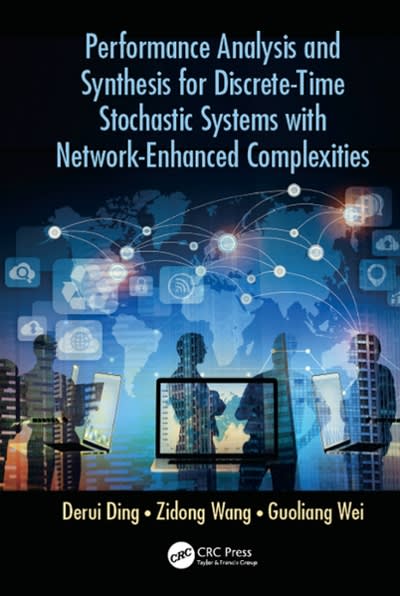Question
1.The eighth-grade class at a grade school has 13 girls and 14 boys. How many different boy-girl dates can be arranged? 2.Pizza House offers 4
1.The eighth-grade class at a grade school has 13 girls and 14 boys. How many different boy-girl dates can be arranged?
2.Pizza House offers 4 different salads, 2 different kinds of pizza, and 6 different desserts. How many different three-course meals can be ordered?
4. Find the number of ways to arrange the letters in the following words.
A. OVERBUILT
B. HANDWROUGHT
5. Assume a class has 19 members.
a. In how many ways can a president, a vice president, and a secretary be selected?
b. How many committees of 10 people can be chosen?
6. At a party, 10 handshakes took place. Each person shook hands exactly once with each of the others present. How many people were at the party?
7. From a group of 13 boys and 9 girls, a committee of 5 students is chosen at random.
a. What is the probability that all 5 members on the committee will be girls?
b. What is the probability that all 5 members of the committee will be boys?
c. What is the probability that there will be at least 1 girl on the committee?
8. If a fair coin is tossed 10 times, in how many different ways can the sequence of heads and tails appear?
9. Decide whether each of the following statements is true. If false, demonstrate why.
a. 9!/3=3!
b. 9!/8!=9!
c. 9!/4!5!= 126
10. How many different 10-person committees can be selected from a pool of 26 people?
11. If one wanted to study the effect of using a calculator on computational skills in aclassroom,what type of study might be the best to use andwhy?
A. A sample survey study might be best because students will more likely give accurate answers about computation in survey questions.
B. An observational study might be best because some parents might object to their children being forced to use calculators at an early age.
C. An experimental study might be best because the computational ability of a student can be measured by giving similar exercises to a student to work both with and without a calculator.
12. Asecond-grade class has a project to determine how many houses are on the
blocks where they live. Formulate questions that might beasked, how the data might becollected, how it might beanalyzed, and how it might be interpreted.
13. Select all possible questions that may be asked.
A.Do you count the houses all around the block or only on the side where your houseis?
B.How many houses are on the block where youlive?
C.What happens if you are in a new part of town where the blocks are not developedyet?
D.Do you count the houses across the street fromyou?Are they considered on yourblock?
14. Find the number of ways to arrange the letters in the following words.
a. FACTORIES
b. HYPEREXTEND
15. Assume a class has17members.
a.In how many ways can apresident,a vicepresident,and a secretary beselected?
b.How many committees of9people can bechosen?
16. At aparty,21handshakes took place. Each person shook hands exactly once with each of the others
present. How many people were at theparty?
17. From a group of 11 boys and 9 girls, a committee of 4 students is chosen at random.
a. What is the probability that all 4 members on the committee will be girls?
b. What is the probability that all 4 members of the committee will be boys?
c. What is the probability that there will be at least 1 girl on the committee?
18. If a fair coin is tossed11times,in how many different ways can the sequence of heads and tailsappear?
19. Decide whether each of the following statements is true. Iffalse,demonstrate why.
a. 9!/3=3!
b. 9!/8!=9!
c. 9!/7!2!=36
20. How many different 15-person committees can be selected from a pool of 24 people?
Step by Step Solution
There are 3 Steps involved in it
Step: 1

Get Instant Access to Expert-Tailored Solutions
See step-by-step solutions with expert insights and AI powered tools for academic success
Step: 2

Step: 3

Ace Your Homework with AI
Get the answers you need in no time with our AI-driven, step-by-step assistance
Get Started


